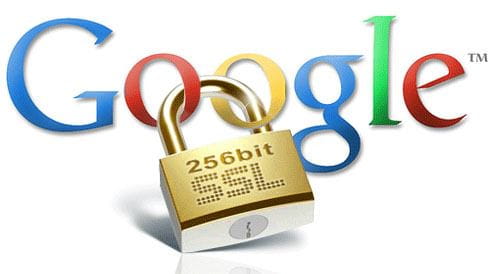

Google will reward encrypted pages with points in the Google search results ranking algorithm. Google hopes to use this to motivate website developers to allow websites to use HTTPS, prevent hackers from invading through technical means, and improve the security level of user information.
Jiexin Google Search Research Center recently learned that Google Inc. (Google Inc.) wants to reward those more secure websites. Google said it would give encrypted pages bonus points in its ranking algorithm. Google hopes to use this to motivate website developers to prevent hacking through technical means and ensure that user information is not stolen.
Google said in a blog that it wants to see more sites using HTTPS. HTTPS is a network protocol that ensures data transmission security. This is another major move by Google to bolster web security. Google stepped up its efforts after the National Security Agency was revealed to be stealing internet information. Christopher Soghoian, chief technologist at the American Civil Liberties Union, said the move is significant and the ultimate boon for websites that use encryption.
Encrypting network data is equivalent to setting up a barrier between network users and hackers who want to snoop or steal data. In this way, even when accessing the network in unsafe Wi-Fi environments such as airports and coffee shops, users information is also protected.
The Snowden incident in 2013 continues to ferment to this day, and according to EEF statistics, at the current rate of disclosure, the documents leaked by Snowden are enough to be released by media such as the Guardian and Der Spiegel for 42 years. The businesses of Internet giants such as Google, Yahoo, and Apple are facing unprecedented network security challenges and pressures, but to make matters worse, the OpenSSL "Heartbleed" vulnerability that broke out in April 2014 can be called an "Internet nuclear bomb" with a three-point Second, the Internet is affected, and the vast majority of Internet users may need to change their passwords.
Although the "Heartbleed" vulnerability shows that encryption technology itself has fundamental flaws, Google still hopes to save the Internet by emphasizing website encryption, and this adjustment of Google's search algorithm will have a major impact on global website developers and Google SEO practitioners .
Previously, Google has demonstrated its determination to strengthen Internet security and improve the level of data privacy protection. For example, it has adopted "end-to-end" security enhancement measures such as forcing Gmail users to use HTTPS connections and encrypting communications between data centers.
Today, security issues such as WiFi security, IoT security, and mobile malware are on the verge of large-scale outbreaks. The frequency of super-large-scale data breaches has increased to once a month. Snowden and heartbleed have shaken the foundation of trust in the Internet. In the current extreme cybersecurity situation, it is not enough for Google alone to take action.
In April 2014, Matt Cutts, executive of Google's search group, revealed at a recent meeting that Google was considering adjusting the search algorithm to improve the ranking of data-encrypted websites.
The following is from Google's official blog:
Keeping users safe is Google's top priority. We invest heavily in this area to ensure that our services use industry-leading security technologies (such as strong HTTPS encryption protection by default). This means that users who use Google services such as Google Search, Gmail, and Drive will automatically establish a secure connection with Google.
In addition to ensuring the security of our own products and services, we are also committed to making the Internet safer on a broader scale. One of the most important points is to ensure that the websites that users visit through Google are safe. For example, we've created some Webmaster Tools resources to help webmasters prevent and fix security breaches on their sites.
We hope to go one step further. At the Google I/O conference held a few months ago, we proposed the use of "HTTPSeverywhere" on the web.
We're also encouraged to see more and more webmasters adopting HTTPS (also known as HTTP over TLS) on their sites.
So we've done some testing over the past few months to try to use whether a site uses a secure encrypted connection as a signal in our ranking algorithm. We've seen positive results from this, so we'll start using HTTPS as a ranking factor. Because we need to allow enough time for webmasters to convert their site's protocol to HTTPS, HTTPS is currently a very small ranking signal, affecting less than 1% of search queries worldwide, and its Weighted less than other ranking signals (such as high-quality content). However, its reach may expand over time, as we encourage all website owners to switch their website protocol from HTTP to HTTPS to keep all users safe online.
